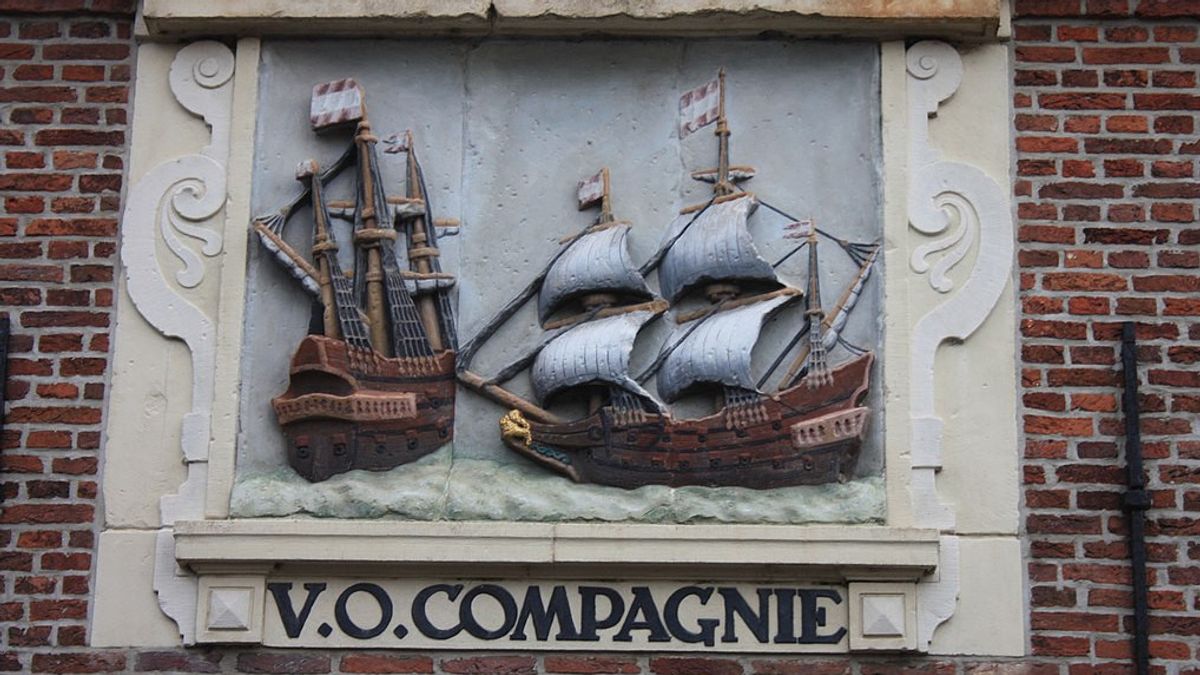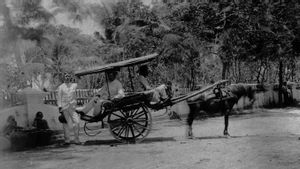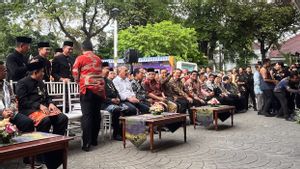JAKARTA – Today's history, 340 years ago, August 11, 1683, the Dutch trading company, VOC established a pepper trade monopoly in Jambi. This monopoly practice was perpetuated in an agreement that forced the Jambi Kingdom to sell pepper, cloth, opium (opium) only to the Company.
Previously, the company's desire to monopolize the archipelago's spice trade was not just empty talk. They perpetuate any means to seize power. War and politics pitting one against the other is the main thing.
The Company's desire to control the spice trade in the archipelago was second to none. This narrative led the Company to perpetuate the conquest of the archipelago kingdoms. At first the Kompeni entered like a friend.
Beneficial agreements between one and the other are forged. Problems arose when the local rulers began to feel comfortable. The Company then played its role in perpetuating the war. That was what the Company later presented in the conquest of the vassal of the Banten Sultanate, Jayakarta in 1619 and the massacre in the Banda Islands in 1621.
The conquest made the Company control of the existing spice trade. However, the war option taken is too costly. Like it or not, the VOC changed its strategy to monopolize the Indonesian spice trade.

The Kompeni chose a more elegant tactic. Divide et impera, his name. This policy of pitting against one another also brought the Company to the peak of its glory. The Company profited greatly from it. Moreover, the costs incurred are relatively small compared to the war.
The Company also perpetuated this strategy to dominate the pepper trade in Banten. The owner of power tried to pit the ruler of Banten, Sultan Ageng Tirtayasa, against his son, Sultan Haji, against each other. The spell was successful.
Sultan Ageng Tirtayasa's power can be terminated. As a form of gratitude, Sultan Haji gave the Company many powers and perpetuated the peace agreement.
“In 1656 the Banten troops were guerrillas around Batavia. In 1657 the Dutch offered a peace treaty, but the agreement only benefited the Netherlands, so the sultan refused. In 1580 the great war began. This war ended on July 10, 1659 marked by the signing of a ceasefire agreement," Tri Hatmadji in the book Ragam Pusaka Budaya Banten (Variety of Banten Cultural Heritage) (2007).
Kompeni then wanted to spread its wings to the Kingdom of Jambi. The owner of power saw that the Kingdom of Jambi controlled the large pepper trade. The Company was smitten. They had set up a lodge in Muara Kompeh.

The spell did not bring results. All Jambi residents refused to sell their crops to the Kompeni. The Company was furious. They then looked for ways to monopolize the spice trade in Jambi. Divide at Impera was again used.
The Kompeni also offered protection to the Jambi Sultanate if they received threats from the Johor Kingdom. This effort gave the Kompeni the upper hand. The Kingdom of Jambi felt helped and wanted compensation.
Finally, the monopoly on the pepper trade in Jambi was successfully perpetuated on August 11, 1683. The agreement also required Jambi to sell its crops only to the Dutch. From pepper, cloth, to opium.
SEE ALSO:
“The Dutch Company has clearly started to intervene in the affairs of the Kingdom of Jambi. By proposing an agreement in 1643 which essentially forced a trade monopoly, but was rejected, Sultan Abdul Kahar finally stopped and was replaced by Sultan Abdul Jalil who could follow the will of the VOC. During the reign of Sultan Sri Ingalogo (1665-1690), war broke out between the Jambi Kingdom and the Johor Kingdom where the Jambi kingdom received VOC assistance and eventually won.”
"Nevertheless, as a reward for this assistance the VOC successively presented agreements dated 12 July 1681, 20 August 1681, August 11, 1683, 20 August 1683 which in essence these agreements strengthened the pepper buying monopoly and instead forced the VOC to sell cloth and opium ,” explained Marwati Djoened Poesponegoro in the book Sejarah Nasional Indonesia Jilid III (Indonesian National History Volume III) (2019).
The English, Chinese, Japanese, Arabic, and French versions are automatically generated by the AI. So there may still be inaccuracies in translating, please always see Indonesian as our main language. (system supported by DigitalSiber.id)















